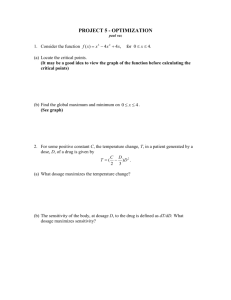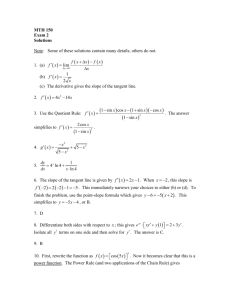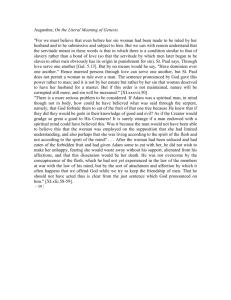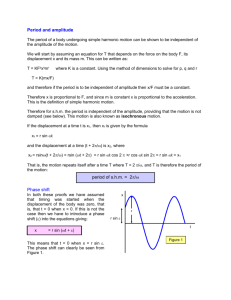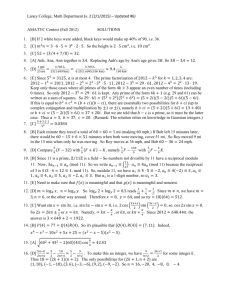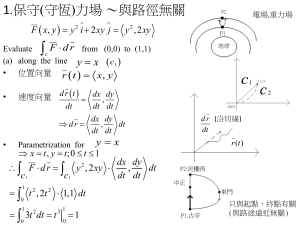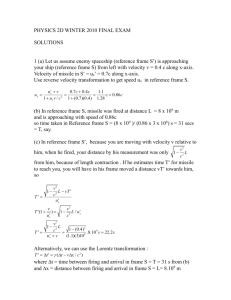Introduction to Engineering Mathematics
advertisement
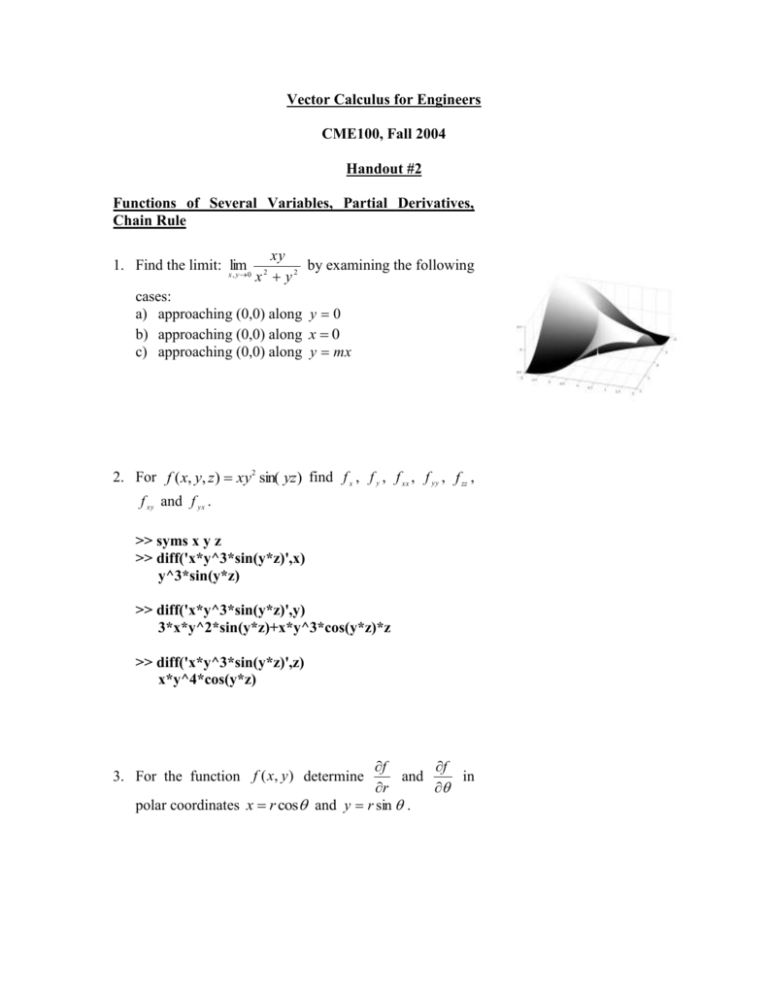
Vector Calculus for Engineers
CME100, Fall 2004
Handout #2
Functions of Several Variables, Partial Derivatives,
Chain Rule
1. Find the limit: lim
x , y 0
xy
by examining the following
x y2
2
cases:
a) approaching (0,0) along y 0
b) approaching (0,0) along x 0
c) approaching (0,0) along y mx
2. For f ( x, y, z) xy2 sin( yz) find f x , f y , f xx , f yy , f zz ,
f xy and f yx .
>> syms x y z
>> diff('x*y^3*sin(y*z)',x)
y^3*sin(y*z)
>> diff('x*y^3*sin(y*z)',y)
3*x*y^2*sin(y*z)+x*y^3*cos(y*z)*z
>> diff('x*y^3*sin(y*z)',z)
x*y^4*cos(y*z)
f
f
and
in
r
polar coordinates x r cos and y r sin .
3. For the function f ( x, y ) determine
4. For w( x, y, z ) xy z such that x y z determine
w
w
a)
b)
x y
x z
Linearization, Differential
5. Two resistors R1 and R2 are connected in parallel. If
R1 200 and R2 300 and if these values may
be in error by as much as 2 , estimate the maximum
error in the calculated value of the combined resistance.
Gradient, Directional Derivative
6. For the following function z f ( x, y) 10 x 2 y 2
determine:
a) gradient of z at (1,1)
b) directional derivative in the direction of
3i 4 j
u
at (1,1)
5
c) directions of maximum increase, maximum
decrease, and no change in z
d) a particle moves by a distance of 0.1 units in the
direction of the gradient. Determine the
approximate change in z
e) a vector normal to the surface z 10 x 2 y 2 at
(1,1)
meshc makes a surface plot with level curves for
a function in 3D
>> [x,y]=meshgrid(-2:0.1:2);
>> z=10-x.^2-y.^2;
>> meshc(x,y,z)
Maxima and Minima, Lagrange Multipliers
7. Find the least amount of plywood needed to construct a
closed rectangular box of a given volume V.
z
Function fminsearch minimizes functions
of several variables
x
y
>> fminsearch('2*x(1)*x(2)+2/x(1)+2/x(2)',[1,2])
ans =
1.0000
1.0000
8. Determine an equation of a line that best fits n data
points ( x1 , y1 )...( xn , y n ) in the least squares sense.
Solve for the slope and the intercept for the following
set of data points:
3
2.5
2
1.5
1
0.5
n
1
2
3
4
x
0
1
2
3
y
0
2
1
2
Function polyfit determines best fit (linear and
nonlinear) to a given set of data
>> x=[0 1 2 3];
>> y=[0 2 1 2];
>> polyfit(x,y,1)
ans =
0.5000
0.5000
0
-0.5
-1
-0.5
0
0.5
1
1.5
2
2.5
3
3.5
4
9. The temperature over a semicircular disk of radius 1 is
given by: T ( x, y) xy x 2 . Find all absolute maxima
and minima (if any) over the specified region.
10. Redo Problem 7 using the method of Lagrange
Multipliers.

